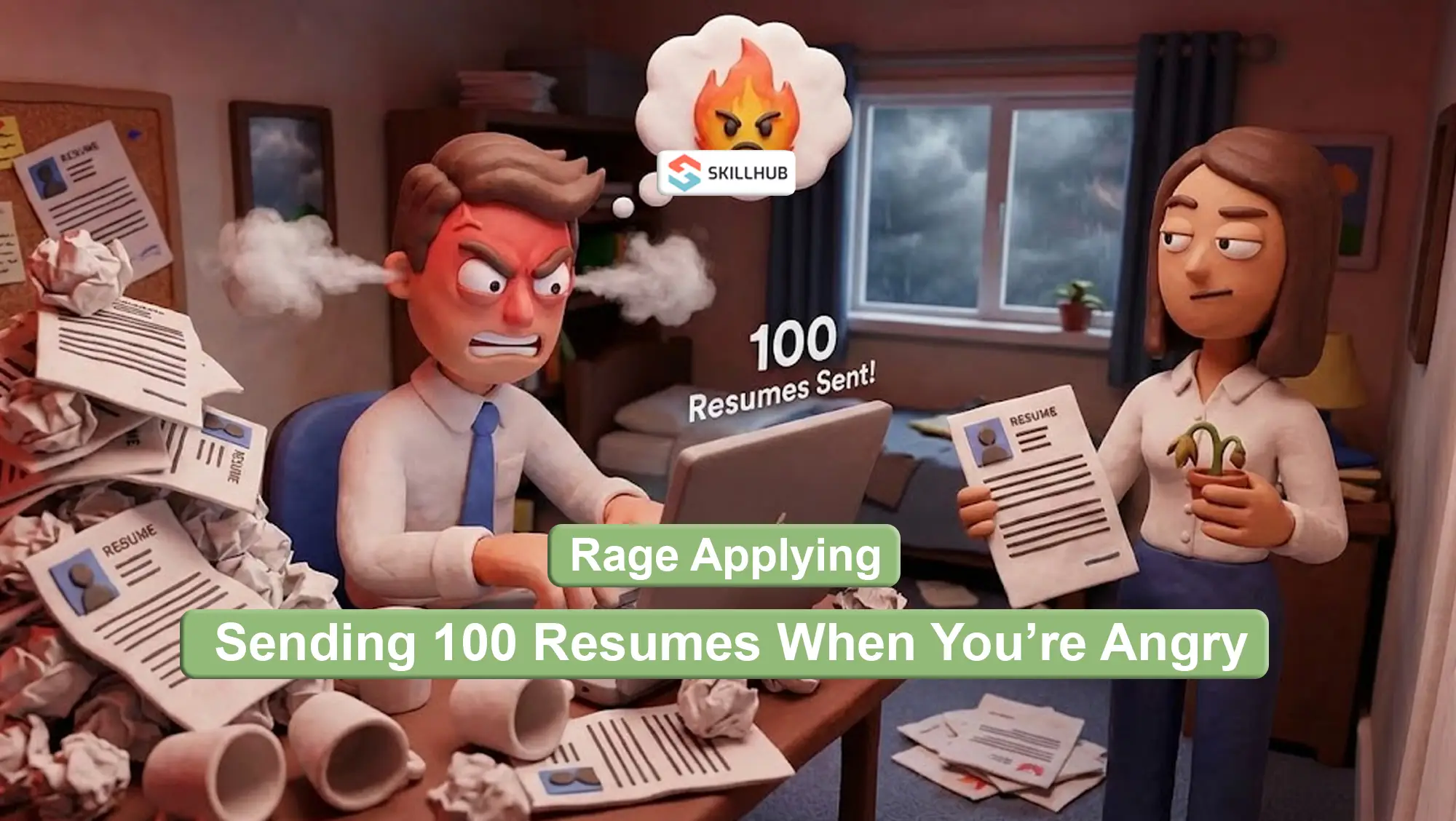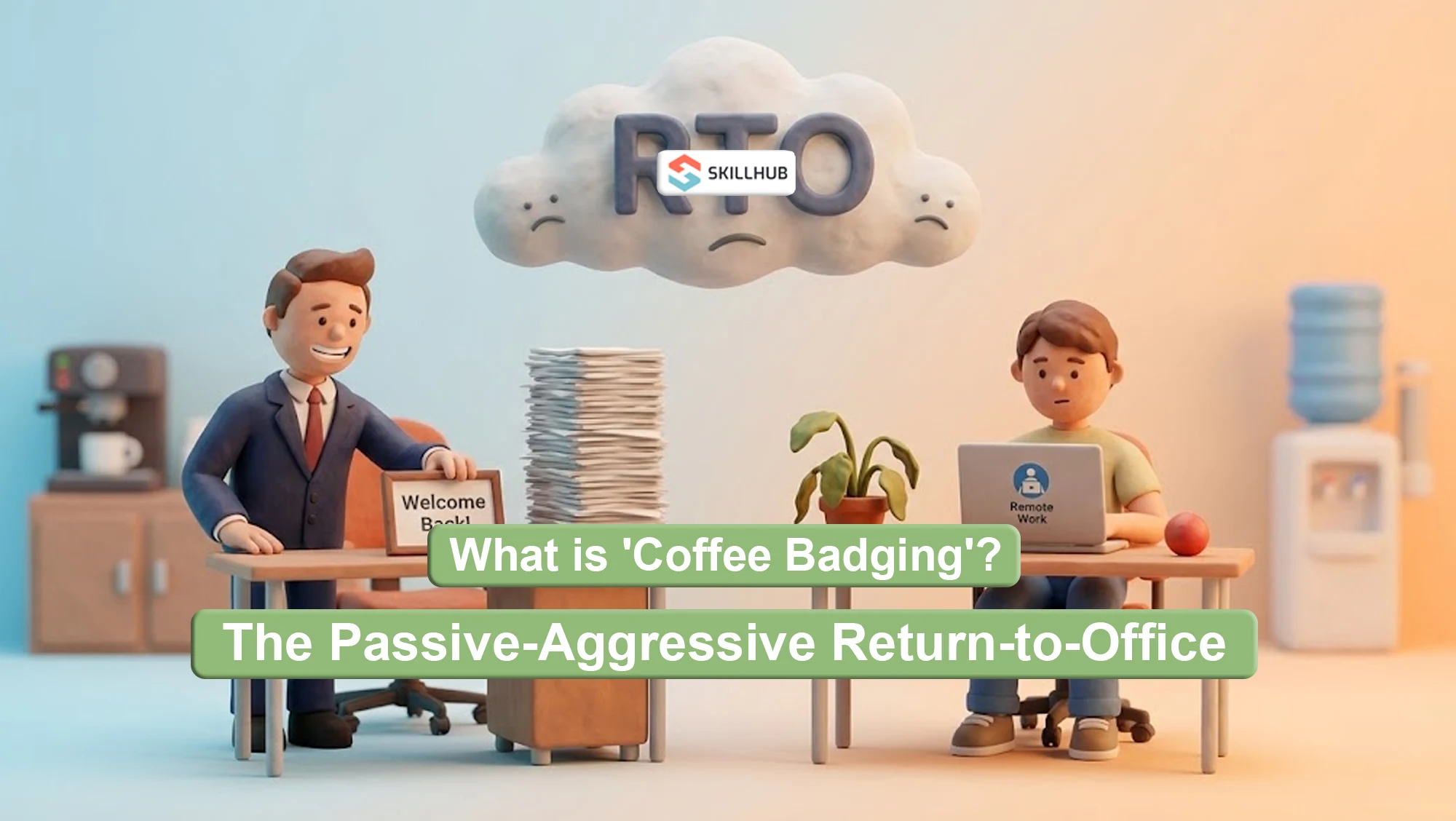Freelance vs. Full-Time: Which One’s Better?

The contemporary work environment has diverse work alternatives, with each having its advantages and disadvantages. Full-time, part-time, and freelance work all have their benefits and demerits, with workers having to carefully balance their choices while making professional choices.
Freelance working vs. full-time working has become an increasingly debated topic in recent years, with increasing numbers of workers choosing the freedom and flexibility of freelancing over the security of full-time working. Part-time working offers yet another alternative, with flexible hours and the opportunity to gain valuable experience in a selected field.
However, securing a job is not easy. It is difficult to determine what is best for your needs. Writers for Skillhub, the Human Resources Team, and our experienced career guidance counsellor will try to give good information and advice to allow you to decide between the forms of employment which are best for you.
Full-Time Employment
A full-time employee works around 40 hours per week for a single employer. Full-time work offers a fixed salary, benefits, and job security. But it may come with limited flexibility and work-life balance. It’s commonly found in healthcare, finance, education, and government. Employers usually seek candidates with relevant work experience and education to fill full-time roles.
Freelance work vs. full-time job is a choice job seekers make based on their lifestyle and career goals. While freelancing allows for more control over one's schedule, full-time jobs offer the benefits of being part of an organization and the potential for career advancement. Ultimately, hiring decisions depend on the employer's needs and the candidates’ qualification.
Pros of Full-Time Employment
Full-time employment offers a range of benefits, including job security, a steady income, and access to benefits like health insurance and retirement plans. Another valuable benefit is mentorship programs, which provide employees with guidance and support to foster personal and professional growth. Full-time employees are often eligible for promotions within their organization. Add the freelance vs. full-time salary stereotypes, and it’s no wonder so many people have no desire to find out what is a freelancer.
Also, there's a social capital-related reason why full-time employment is an excellent way to invest in your career. You get to build relationships with colleagues and make meaningful contributions to the workplace. While freelancing offers more flexibility and independence, full-time employment can provide a sense of stability and growth.
Cons of Full-Time Employment
That being said, full-time work isn’t without its drawbacks. One of the most significant disadvantages is the limited flexibility it provides. Full-time employees often have set schedules and limited opportunities for remote work. Besides, they may experience more stress and pressure due to the demands of their position. However, many businesses are now offering more flexibility for in-house workers by maximizing the value of a team extension, allowing employees greater control over their schedules and work locations.
Freelance vs. full-time work is an important decision for an applicant to make. When trying to get hired, it's important to start with company research so that you can determine which company culture and work environment are best for you. In many cases, considering a flexible workspace within a hybrid work model can help you balance the benefits of flexibility and structure.
Freelancing
Freelancing is a work arrangement where independent contractors work on a project or contract basis for multiple clients or companies. What is a freelancer? They are self-employed professionals who offer their services to clients temporarily or part-time.
Freelance work is common in creative fields like design, photography, and writing business. But it can also be found in more traditional industries, such as tech. Writing services, marketing agencies, and software development firms often hire freelancers to complete specific projects or fill a temporary staffing need. For businesses focused on digital growth, it can also be a strategic move to find a top SEO agency through freelance platforms to manage search visibility without committing to a long-term contract. Freelancers seeking collaboration with established firms can utilize a marketing agency directory to identify potential partners and projects.
Freelancers do not have any specific person or business as their employer and are free to design their own schedule and working conditions. Depending on the field and project requirements, a job listing for freelance work can look very different.
To obtain freelance work, you can start by posting a query to potential clients, answering freelance job postings, or passing through talent acquisition agencies.
Here are some professions you may wish to pursue if you're ready to live a freelancer's life:
- Academic Writers
- Content Writers
- Comedy Writers
- Copy Editor Writers
- Ebook Writers
- Fiction Writers
- Article Writers
- Business Plan Writers
- Biography Writers
- Blog Writers
- Fact Checkers
Pros of Freelancing
Freelancing offers several benefits over full-time employment, including more flexibility in your schedule and work location. Freelancers can choose their clients and projects, which allows them to tailor their work to their skills and interests. And contrary to popular belief, the former can be higher in the freelance vs. full-time salary pair.
Freelancers can work with clients from all over the world, pick their mid term rentals, expanding their network and professional opportunities. You can also get professional help with bookkeeping and taxes if you don't want to do that yourself. Remember, though, when applying for a job as a freelancer, having a solid portfolio and relevant experience is critical.
Cons of Freelancing
But freelancing also has some drawbacks to consider. Freelance work vs. full-time job stability can be a concern, as freelancers may experience fluctuations in their workload and income. Freelancers are responsible for finding and securing their clients, which can require much time and effort.
What's more, freelancers have limited access to career resources and opportunities for career advancement. Unlike full-time employees, freelancers don't get employee benefits like health insurance or retirement plans. Applications for freelance work often require a strong portfolio and a track record of accomplishments, which can be challenging for those new to the field.
Part-Time Job
Part-time employment is an arrangement where one works for shorter hours per week compared to full-time employees. Part-time remote employment offers flexibility to those with other responsibilities, for example, students and parents. Part-time employment can be found in most industries, such as retail, hospitality, and health care. Local part-time employment can be found on the Internet or through the use of a recruiter.
Looking for part-time jobs is usually different from looking for full-time jobs. Try networking within your target field or directly calling up companies to ask if they have part-time job openings. Although part-time employment will not have the same career growth or benefits as full-time employment, it is ideal for individuals who value their work-life balance.
Pros of Part-Time Job
Part-time jobs have several benefits, including flexibility in the schedule and balancing work with other duties, such as school or family. Part-time jobs near me can be convenient and require shorter commutes. In addition, part-time work can be a great source of income as well as experience in a selected field.
It may be simpler to obtain part-time work than full-time work because part-time work may be less competitive. Part-time work may also serve as a stepping stone to get in contact with the right person, which can lead to full-time work with the same company.
Cons of Part-Time Job
But part-time employment also has some drawbacks, including reduced access to employee benefits, such as health insurance and retirement plans. Part-time remote work may not involve the same degree of supervision or assistance as in-person work. And it may require a high degree of self-motivation and time management.
Also, part-time workers may have less influence over departmental choices and organizational culture compared to full-time workers. It is even more difficult to apply for part-time positions. The job application process may require the same effort as seeking full-time employment but with perhaps fewer job vacancies.
Key Takeaways
As you can see, full-time, freelance, and part-time work each have their advantages and disadvantages. While full-time work offers stability and benefits, freelance work provides flexibility and autonomy, and part-time work offers a compromise. Flexible work arrangements also offer clear advantages for employers, including increased productivity, higher employee engagement, and access to a wider talent pool, highlighting the benefits of flexible working for employers.
Finally, the decision among these options is based on your interests and professional goals. Weigh the pros and cons of each option thoroughly before making a decision. Talking to professionals (e.g., hiring manager that you know) can be very helpful in finding the best fit for your interests and skill set.
%20(1).png)



%20(1).webp)